Artistic Devotion – A journey Through Horror And Success With Red Candle Games
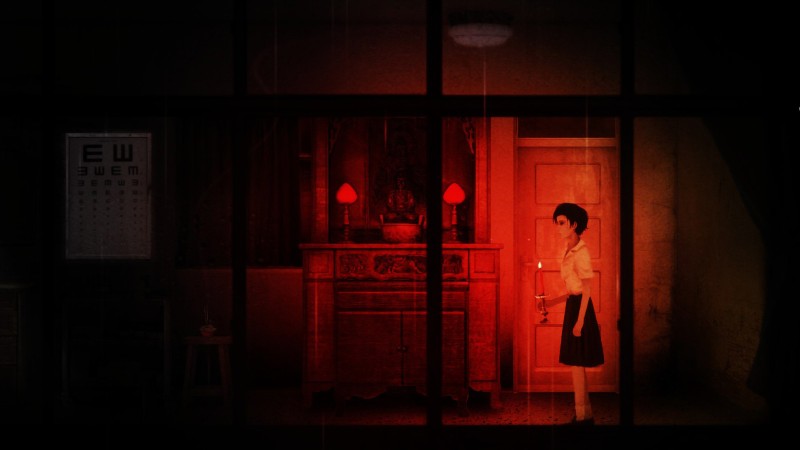
Scaring players has helped put the small team at Red Candle Games on the map. Its first two titles, Detention and Devotion, impressed and terrified fans with frighteningly strong horror chops, but the team is leaving that behind to tackle something completely different in Nine Sols. This side-scrolling action platformer blends sci-fi with Chinese mythology and is Red Candle’s most ambitious project yet. This significant step forward affords an opportunity to look back on the studio’s young history, so we spoke with co-founder Vincent Yang to learn about how a small band of gamers in Taiwan formed one of the industry’s most promising – and, at one time, controversial – indie studios.
Red Candle Games began in 2014 when designer Coffee Yao was developing a prototype for Detention. The side-scrolling horror game features two students exploring a haunted high school in 1960s Taiwan, incorporating local cultural references rarely seen in games. These elements drew the attention of Henry and Light Wang during an indie developer meetup in Taipei. According to Yang, Detention impressed the Wangs enough for them to join the project. As the game grew in scope, the three recruited help from mutual friends – Doy Chiang, Hans Chen, and Yang himself – bumping the yet-to-be-named team to six members by late 2015. After working remotely on Detention for a period, the group decided a physical office was necessary, which led to the official formation of Red Candle Games.
Detention was released on Steam in January 2017 and was well-received by critics and players. The game has since been ported to multiple platforms and even adapted into a live-action film in 2019 (it premiered in the U.S. in 2021). Additionally, Netflix and Taiwan’s Public Television Service released a Detention TV show in 2020 – though with a different story from the movie.
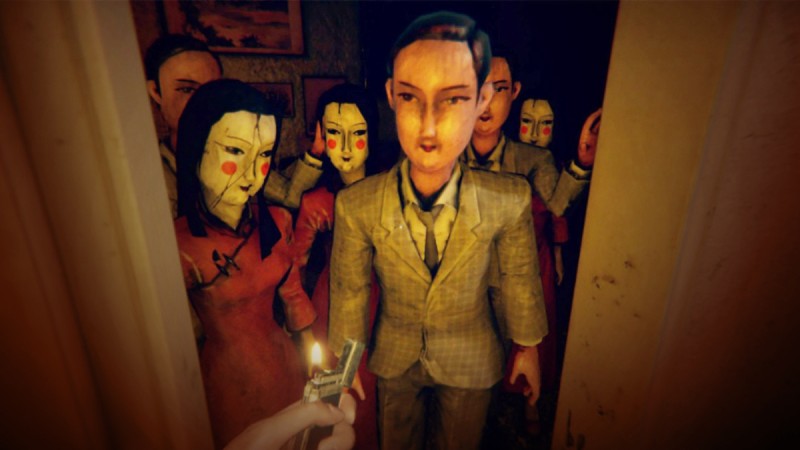
Devotion
Red Candle followed this success with Devotion, an atmospheric first-person horror game set within a haunted apartment. Moving from 2D to 3D development is a big design shift, but Yang believes regularly changing gears like this is necessary to maintain fan interest.
“Because in this ever-changing and competitive gaming market, we often find it difficult to impress the players by applying the same techniques repeatedly, which pushes us to keep delivering new and innovative ideas,” Yang says. “This, in turn, changes the way we make games.”
After over two years of work, Devotion arrived on Steam in February 2019 to heaps of praise from the lucky players who managed to get their hands on it. But only two days after its launch, the game riled up controversy among Chinese players thanks to a piece of in-game art mocking China’s president, Xi Jinping, by calling him Winnie the Pooh, referencing an internet meme that unfavorably compares the leader’s appearance to the character. China and Taiwan have a tense relationship, so the resulting backlash from the country’s players and the government was severe enough to force Red Candle to pull Devotion from sale. The game’s Chinese publisher even lost its business license.
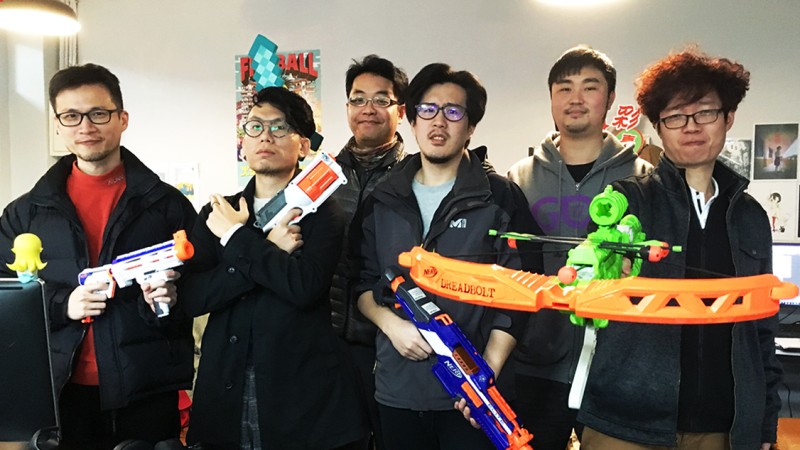
Red Candle Games’ founders, (left to right): Doy Chiang, Hans Chen, Coffee Yao, Vincent Yang, Henry Wang, and Light Wang
To the dismay of horror enthusiasts, Devotion remained delisted for over two years. Inklings of hope would occasionally arise, such as PC storefront GOG announcing plans to re-sell the game before it immediately back-peddled due to vaguely defined player complaints. Fortunately, Red Candle finally began re-selling Devotion directly through its website in March 2021, bringing its tumultuous journey to an end. Red Candle could move forward. “As a team, we felt relieved, as if a heavy weight was lifted from our shoulders,” says Yang.
Moving forward meant stepping away from horror to do something different. Enter Nine Sols, which Red Candle started working on a few months before Devotion’s original launch. Yang says the game originates from a concept he envisioned years prior based on the story of Hou Yi. In Chinese mythology, Hou Yi is a legendary archer who used his bow to rescue the country from plagues and saved the moon during an eclipse, among other supernatural feats. Yang proposed reworking this story into a science fiction tale, an idea that intrigued his teammates.
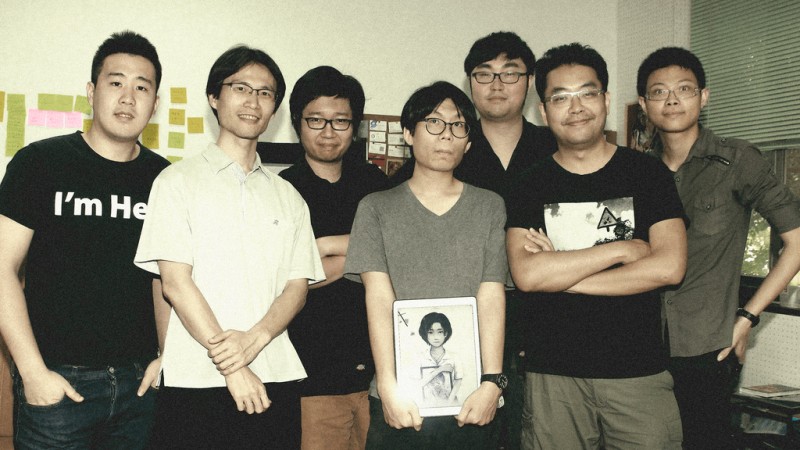
Nine Sols unfolds in the realm of New Kunlun, a sanctuary for humans created by nine god-like rulers. However, the population is unaware of New Kunlun’s sinister true purpose. That changes when a child awakens Yi, a cat-like hero that history has forgotten. Yi embarks on a quest to slay the nine rulers and free New Kunlun. The adventure sports a manga-inspired hand-drawn art direction blending cyberpunk/sci-fi with Chinese fantasy and Taoism. Gameplaywise, Nine Sols is a fast-paced 2D Metroidvania with Souls-like combat, as players hack apart enemies using Yi’s sword and parry attacks in a manner directly influenced by Sekiro: Shadows Die Twice.
The project is a gamble, as the team leaves its comfort zone to make its first action platformer. Yang says with its art assets, gameplay mechanics, levels, animations, and 12-15 hour length, Nine Sols is the studio’s biggest title yet. But the team needed to do something different to avoid feeling burned out on horror while also taking advantage of the flexibility its team size affords.
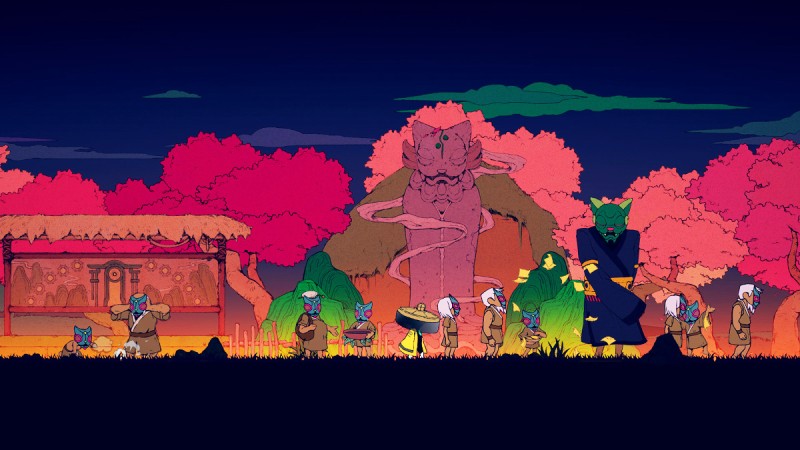
Red Candle Games’ upcoming Nine Sols pays homage to the Chinese myth of Hou Yi, and features a manga-inspired art style
“Being an indie developer, in a way, makes us more versatile and gives us more room to be creative, meaning we have the privilege to experiment on different topics and gameplay,” Yang says. “It’s then reasonable that we want to leverage that versatility and explore other possibilities wherever we have the chance.”
Nine Sols is Red Candle’s first action game, but it’s leveraging its narrative chops to craft what Yang hopes will be a compelling story filled with rich lore to create what he describes as “a new kind of action platformer” – one with equal emphasis on engaging gameplay and storytelling.
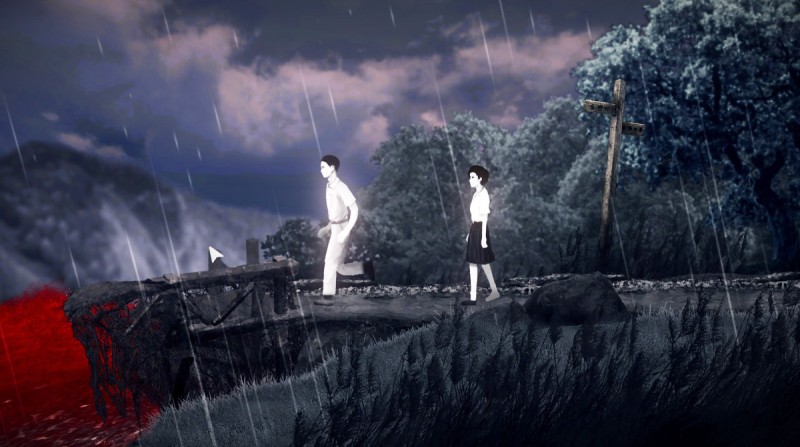
Detention
Nine Sols also marks the team’s most serious attempt at penetrating the Western market. Detention and Devotion, despite their success, still appeal to relatively niche audiences. On the other hand, Nine Sols combines two very popular subgenres, and Yang hopes that results in the game making the biggest splash possible overseas and putting the studio on more people’s radars.
Nine Sols is currently slated to launch in Q1 2024, but curious players can play a free Steam demo. Depending on its success, the title could be a launch pad for other experiences that don’t focus exclusively on frightening players.
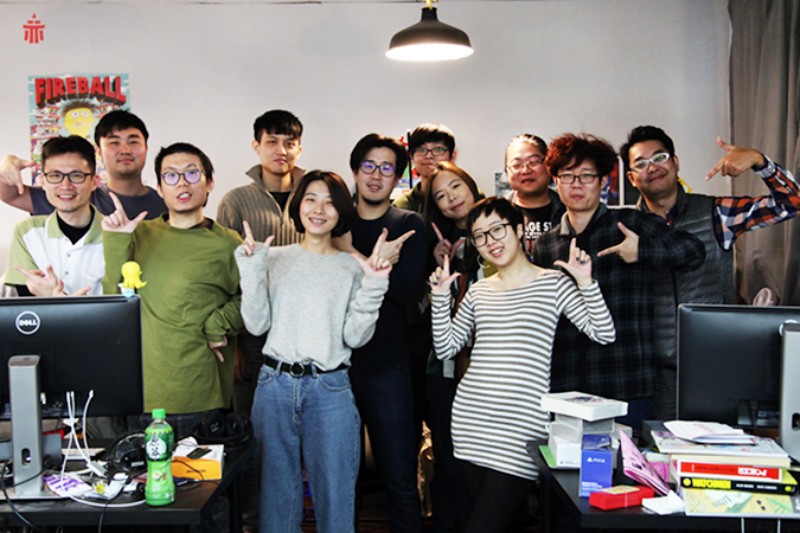
“If given the opportunity, I think we’d love to explore other genres in the future,” says Yang. “Deep down, we are simply a group of game creators who love all kinds of games. So as long as we ensure the product we produce will have guaranteed quality and doesn’t disappoint our current and future supporters, I find no reasons for us to be locked into the horror genre.”
As for Red Candle’s future, Yang believes maintaining its small size has its benefits. Since Devotion’s launch, only three new employees have joined, while one has left, meaning the studio has grown from 11 to 13 full-time staff members. While he’s happy with the advantages of running a small team – smoother communication and more room to experiment – he’s not opposed to expanding the studio’s size if needed. “I envision us as a resilient team that can embrace and adapts to any possible changes regardless of our size,” Yang says.
Nine Sols is the biggest test yet for the studio, eschewing almost everything that brought it success in an attempt to broaden its appeal by tackling a competitive genre. But Red Candle Games has proven its ability, resiliency, and versatility over its relatively young existence. We’re excited to see how it continues to delight – or terrify – its fans going forward.
This article originally appeared in Issue 356 of Game Informer




